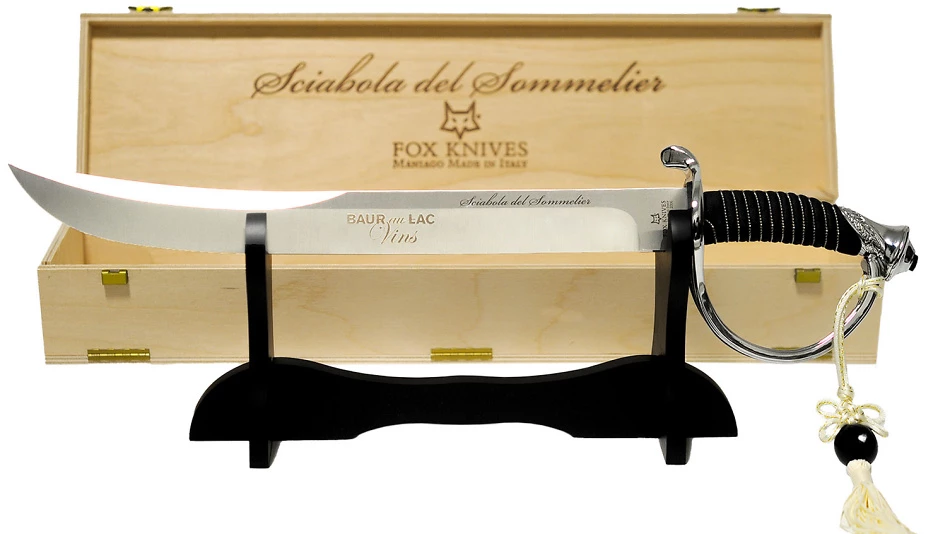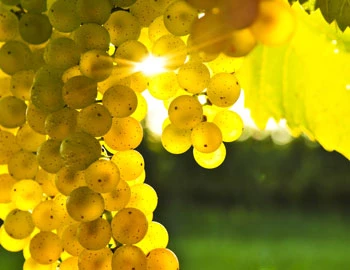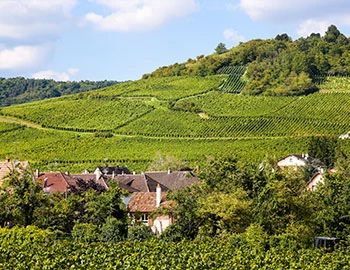
Nicolas Feuillatte Grand Cru Millésimé Blanc de Blancs 2011
AOC Champagne, 750 ml

| Grape variety: | Chardonnay |
| Producer: | Nicolas Feuillatte |
| Origin: | France / Champagne |
| Other vintages: |
Description
Awarded with Platinum and 98 points by the Decanter Magazine. A Blanc de Blancs made exclusively from grapes from Grand Cru sites and aged for at least eight years in the bottle. Impressively intense bouquet, reminiscent of white star jasmine blossoms, acacia, mint, lemon grass, apple, blood orange, some mocha and roasted almonds. A bit like a walk over an oriental market or through an orangery. On the palate, a start with a fine mousse, multi-layered, elegant and at the same time opulent with a fine minerality. The juiciness has an animating effect. An aromatic dress of fresh meadow herbs, vanilla, pomelo, white currant, pineapple and subtle roasted aromas.
Celebrate the Art of Sabring!

With its elegant design, this champagne sabre is not only an impressive eye-catcher at any celebration and an indispensable tool for stylish sabering, but also the perfect gift for all passionate sparkling wine lovers.
Attributes
| Origin: | France / Champagne |
| Grape variety: | Chardonnay |
| Ripening potential: | 2 to 15 years |
| Drinking temperature: | 10 to 12 °C |
| Food Pairing: | Smoked fish, Fish terrine, Vitello tonnato, Spicy hard cheese, Whole baked fish |
| Vinification: | pressing the whole grape, fermentation in steel tank |
| Harvest: | hand-picking, strict selection |
| Maturation: | in steel tank |
| Volume: | 12.0 % |
| Note: | Contains sulphites |
Nicolas Feuillatte
Nicolas Feuillatte, a visionary and gifted entrepreneur, presented his Champagne for the first time in 1976. It quickly became the trendy brand in jet-setter circles in the USA, Australia and England, circles which Nicolas Feuillatte regularly frequented. In just 30 years, Nicolas Feuillatte rose to become the No. 1 Champagne brand in France.
Behind the brand lie numerous wine growers and their families, lovingly tending their vineyards with the experience of generations to obtain the best quality grapes for the harvest. They are organised within the Centre Vinicole de la Champagne, the most important wine growers’ association in Champagne. The vineyards include 13 invaluable Grand Cru and 33 1er Cru areas, the basis for exclusive and prestigious top cuvées such as Palmes d'Or Brut and Palmes d'Or Rosé. In order to ensure flawless quality, the grapes – regardless of origin – are pressed immediately after harvesting in on-site presses in the vineyards themselves.

Chardonnay
King or beggar?
Hardly any variety of vine shows such a broad spectrum of quality as the Chardonnay. Its wines range from faceless neutrality to breath-taking class. It is an extremely low-maintenance vine, which explains why it is grown around the world – even in places where it probably should not be. The aromas of the Chardonnay variety are not very pronounced: a bit of green apple, a little hazelnut; in warmer latitudes, also melon and exotic fruits. The wines are often defined by maturing in casks. They develop more or less subtle notes of butter, toasted bread and vanilla. The grapes achieve their highest expression in their region of origin, Burgundy. Its heart beats in the Côte de Beaune: one might think of the plant growth of Meursault or Puligny-Montrachet. With their finesse and complexity, they can survive for decades. Chardonnay also achieves first class in some Blanc-de-Blancs champagnes. It additionally yields great wines in the Burgundian Chablis, and increasingly in Australia and Chile. A simple rule of thumb for pairing with food: When butter and cream are involved, you cannot go wrong with Chardonnay.

France
France – Philosophy in a bottle
According to French philosophy, wine should be an expression of the soil and climate. They use the word “terroir” to describe this. Terroir makes every wine different, and many especially good. French wine is regarded worldwide as an expression of cultural perfection. The French believe that humans are responsible for the quality of the berries, the vine variety for their character, and nature for the quantity. This philosophy can be expressed succinctly as: “the truth is the vineyard, not the man.”


